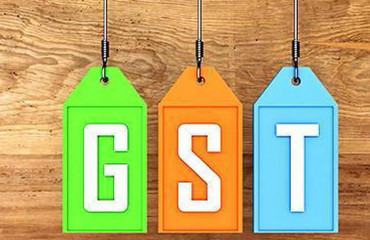
- 19 Jul 2025 04:48 PM
- New
BCCI invites proposals for accreditation services; how to procure RFP documents? What's eligibility criteria? Details
The BCCI has invited proposals for accreditation services with details of how to procure RFP documents and the eligibility criteria. The last date of submission of proposal documents is August 4, 2025.
Read More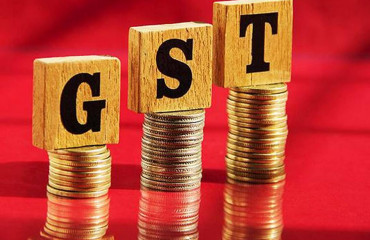
- 18 Jul 2025 05:19 PM
- New
Clarification for traders transacting via UPI and Registration Requirement
The Department of Commercial Taxes, Benqaluru issued a press note on 11th July 2025 clarifying issues surrounding GST registration requirements for traders transacting via digital payment gateways. This clarification follows widespread confusion after media reports. Under Section 22 of the GST Act, 2017, GST registration is mandatory for businesses exceeding ₹40 lakhs in annual turnover for goods and ₹20 lakhs for services, regardless of the payment mode (cash, UPI, POS, etc.). Tax is levied only on taxable goods and services, after input tax credit adjustment. Businesses with turnover below ₹1.5 crore can opt for the composition scheme and pay GST at a lower rate (1%), but this is only available after registration. Officers have been instructed to guide and assist taxpayers, verify submitted documents, and ensure that registration processes are smooth. So far, over 98,000 taxpayers are registered under the composition scheme. Notices have been issued to unregistered traders exceeding the turnover threshold, but they account for less than 10% of registered composition dealers. The department also observed that some traders have shifted from UPI to cash post-notices; however, GST liability applies regardless of the mode of payment. Traders are urged not to panic and to comply with GST laws.
Read More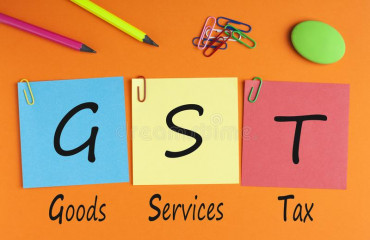
- 17 Jul 2025 05:37 PM
- New
Simplify GST: It’s time for a single all-India identification mandate
The goods and services tax (GST), which recently completed eight years in India, was originally envisioned as a “good and simple tax." However, over time, it has become increasingly complex. While a national GST would have been an ideal value added tax (VAT) system, the imperatives of a federal structure led to a compromise, resulting in a dual GST system comprising Central GST (CGST), State GST (SGST) and Integrated GST (IGST).
Read More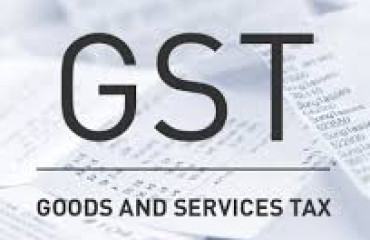
- 16 Jul 2025 06:38 PM
Ajit Ranade: A progressive GST is easier to promise than achieve
This month, India’s goods and services tax (GST) completed eight years. This is a milestone reform. It is a consumption tax that unifies the national economic market, getting rid of inter-state frictions and tax cascades, and is fully electronic with in-built incentives for compliance and prevention of leakage. In the five years since 2020-21, annual gross GST collections have more than doubled to ₹22 trillion.
Read More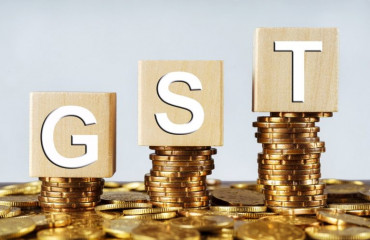
- 16 Jul 2025 06:46 PM
DGGI Uncovers Rs 266 Crore Invoice Fraud, six shell companies
The Directorate General of GST Intelligence (DGGI) Bengaluru Zonal Unit uncovered a network of six shell companies involved in fraudulent activities, leading to the arrest of the alleged mastermind. Investigations, stemming from an initial case in Bengaluru and extending to searches in Delhi, revealed fraudulent invoices totaling over Rs. 266 crore. This operation also exposed the illegal claiming and passing on of Rs. 48 crore in fraudulent Input Tax Credit (ITC). The mastermind reportedly established these shell entities without actual business operations, engaging in circular trading to inflate turnover and listing one company on the stock exchange to facilitate the ITC fraud. Evidence collected, including original invoices and company seals found at the mastermind’s premises, linked the individual—who at times served as a Chartered Accountant/statutory auditor and director—to the origin and management of these shell companies. The DGGI has commenced a thorough investigation into this fraud, noting its potential impact on investors in listed companies, and has shared intelligence with SEBI for action under the SEBI Act.
Read More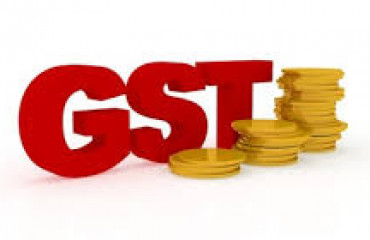
- 16 Jul 2025 06:42 PM
Consumer dissonance: Focus policy on market rivalry instead of pricing strategy
In a country of highly price-conscious consumers, even a liberalized economy must endure an itch for price control that seems to surface in policy circles every few years. The latest instance is an idea reported to have popped up as part of a proposal to revise India’s MRP system. Under it, as of now, consumer-facing companies must display a ‘maximum retail price’ on a product’s pack above which it cannot legally be retailed.
Read More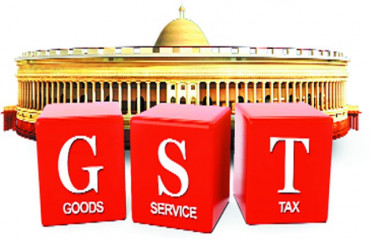
- 16 Jul 2025 06:52 PM
GST – Journey, Challenges & Road Ahead
Source: https://taxguru.in/goods-and-service-tax/live-webinar-gst-journey-far-present-challenges-road.html
Summary: TaxGuru is hosting a live webinar titled “GST – The Journey So Far, Present Challenges & The Road Ahead” on Saturday, 26th July 2025, from 6:00 PM to 7:00 PM IST, live on TaxGuru.in YouTube Channel. The session aims to reflect on eight years of GST implementation in India, highlighting its progress, ongoing challenges, and anticipated reforms. The event will feature a panel of distinguished experts in taxation: CA Sudhir Halakhandi, known for simplifying GST concepts; Adv. Dr. Arpit Haldia, who brings a legal and academic perspective; and CA Abhishek Raja Ram, a seasoned GST litigator and author. Together, they will offer a comprehensive analysis of GST’s trajectory, compliance burdens, litigation trends, and the role of technology, including automation and e-invoicing. The discussion will also address ground-level issues faced by professionals and businesses, and look at structural and policy reforms shaping the future of GST. The webinar is free, open to all, and requires no registration but in case you wish to be intimated before the start of the webinar you may register at Register Now. It is designed for a broad audience, including tax professionals, CFOs, entrepreneurs, legal practitioners, and students. Attendees can expect actionable insights grounded in experience, beyond just theoretical commentary. The session promises to foster a realistic and forward-looking dialogue on GST, making it a valuable opportunity for anyone involved in indirect taxation.
Read More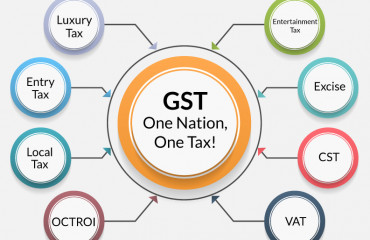
- 14 Jul 2025 01:58 PM
Guide to Online Filing of GST Appeals and Applications
Source: https://taxguru.in/goods-and-service-tax/guide-online-filing-gst-appeals-applications.html
Goods and Services Tax Appellate Tribunal (GSTAT), established by the Government of India under Section 109 of the Central Goods and Services Tax Act, 2017, serves as the highest judicial forum for GST-related disputes at the factual level. To streamline the appeal process and enhance efficiency, GSTAT has launched a dedicated e-Filing Portal, revolutionizing how taxpayers, tax officials, and authorized representatives interact with the tribunal.
Read More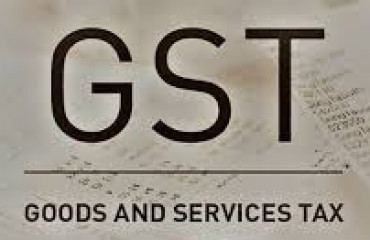
- 14 Jul 2025 02:00 PM
Karnataka GST Dept issues GST notices to traders based on UPI transaction data
Source: https://taxguru.in/goods-and-service-tax/karnataka-gst-notices-issued-traders-upi-data.html
The Karnataka Commercial Tax Department has clarified recent media reports concerning notices issued to small traders regarding Goods and Services Tax (GST) compliance. The department initiated this action by collecting Unified Payments Interface (UPI) transaction data from various service providers for the financial years 2021-22 to 2024-25. These notices target traders whose UPI receipts alone exceeded Rs 40 lakh, indicating a potentially higher overall annual turnover when factoring in cash and other transaction modes.
Read More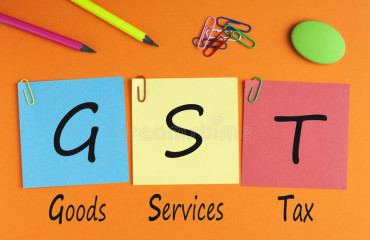
- 10 Jul 2025 06:20 PM
Need to go a bit beyond standard parameters: Finance Commission member
New Delhi: The Sixteenth Finance Commission that has just completed its round of state visits may have to go "a bit beyond" the standard parameters while computing the share of the country's revenue kitty between states and the Centre, said Manoj Panda, a member of the commission said.
Read More